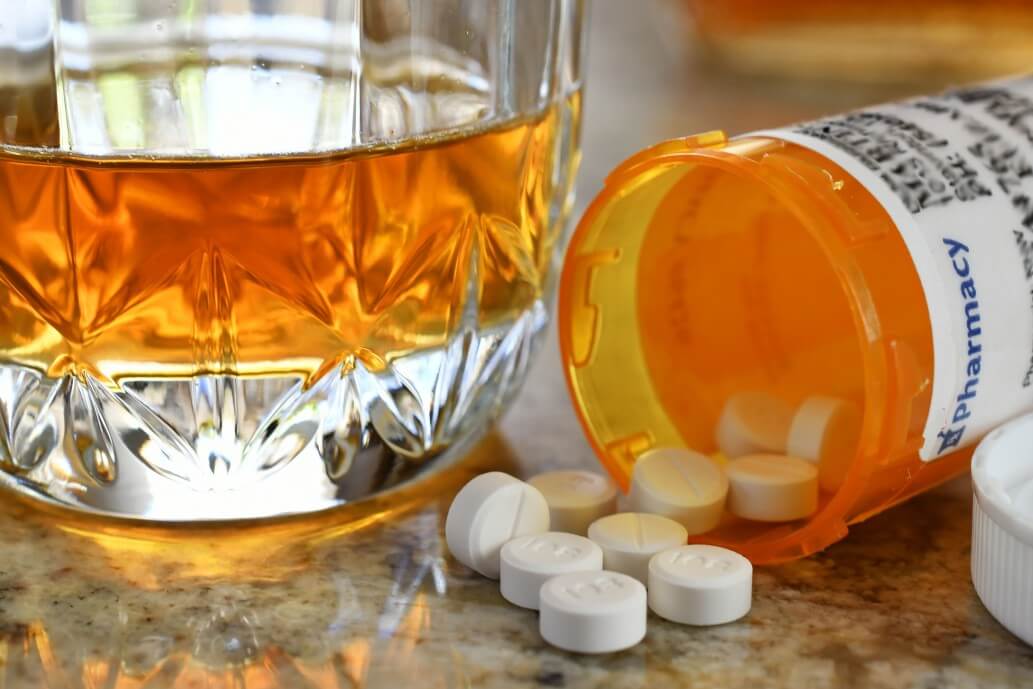When the weight of anxiety and depression is backing you into a corner, having a few drinks might seem like a good way to ease the tension. But the truth is, alcohol is a depressant and can actually have the complete opposite effect than what you hoped for.
This is especially true if you’re taking an antidepressant like Lexapro.
What is Lexapro?
Lexapro (Escitalopram) is a common brand of antidepressant used to treat depression and anxiety. Lexapro is one of a few types of antidepressants, in the family of Selective Serotonin Reuptake Inhibitors (SSRI Class), it helps restore deficiencies in serotonin, the neurotransmitter that is partially responsible for regulating emotions. Other types of antidepressants include a Monoamine Oxidase Inhibitor like Azilect or Eldepryl, or Serotonin and Norepinephrine Reuptake Inhibitors (SNRIs).
Doctors consider SSRIs to be among the safest classes of antidepressants, but that doesn’t mean there isn’t a risk to taking Lexapro. This is especially true when alcohol is involved.
In this article, you’ll learn about the Lexapro and alcohol interaction, and the side effects that can follow when these two substances are mixed.
Can You Drink Alcohol While Taking Lexapro?
While the struggle of depression and anxiety can be difficult to manage, the clear answer to this question is, no. The combination of Lexapro and alcohol should be avoided due to potentially dangerous side effects. Even a small amount of alcohol can lead to a large amount of unpleasant effects. Mixing these two substances may actually lead to heightened symptoms of depression and anxiety.
By taking Lexapro, you’re given a sense of relief. The medication helps you function in normal, everyday life by blocking severe symptoms of anxiety or depression. But by drinking on Lexapro, you actually decrease the effectiveness of the medication, which can make your anxiety or depression worse.
If you are trying to decide if you should have that drink, just think to yourself: is that worth losing your safety net? Is it worth the increased risk of depressive or anxious thoughts or behavior? Once you’ve answered that question, it’s time to think about the potential side effects.
Lexapro and Alcohol Side Effects
Lexapro by itself has a few side effects such as drowsiness, dry mouth and constipation. But once alcohol enters the equation, things become more dangerous. Generally, medical advice recommends not drinking at all while on SSRIs. In fact, the negative side effects become gradually more severe with each drink you take.
To get an idea of the danger, take a look at these Lexapro and alcohol side effects:
- Increased anxiety
- Worsening depression
- Decreased effectiveness of medication
- Nausea
- Lack of energy
- Liver problems
- High blood pressure
- Suicidal thoughts
Effects of Alcohol with Mental Health Disorders
Individuals struggling with addiction sometimes use alcohol as a way to “deal with” mental health disorders. Since alcohol diminishes the effects of Lexapro, some users may begin to drink even more to try and get rid of their feelings of depression or anxiety. This can lead to liver damage due to the increased alcohol usage over time. For individuals with an alcohol use disorder, the long term effects of drinking on Lexapro can be dangerous.
Lexapro and alcohol side effects are often worsened states of what you’re trying to prevent by taking antidepressants in the first place. It’s no surprise that the interaction between alcohol and Lexapro is almost always negative. Is drinking really worth feeling more depressed, anxious and sick than you were before going on Lexapro?
Alcohol and Mental Health Disorders
If someone who is mixing Lexapro and alcohol doesn’t experience any of the side effects mentioned above, they should still avoid drinking. Those who suffer from anxiety or depression are twice as likely to abuse alcohol. If you are looking for a second opinion as to whether you should drink alcohol while taking antidepressants, talk to your doctor.
Even when on antidepressants like Lexapro, mental health disorders can be challenging to overcome. Most people suffering from a mental health disorder like depression have to fight back their symptoms daily with their own willpower. The next time you’re tempted to mix Lexapro and alcohol, tap into that same willpower.
Lastly, if you find that you’re struggling to control your drinking, it might be time to get help. Whether it’s mental health or addiction, everyone has the potential to break through towards a better tomorrow.
Move Past Alcoholism and Mental Health Disorders at Silver Maple Recovery
If you or someone you know is struggling with alcoholism and a mental health disorder like anxiety or depression, Silver Maple Recovery can help. Our evidence-based alcohol addiction treatment program is supported by an experienced staff. It’s not too late to make a positive change, so call us at 855-762-7531 or contact us online to take the first step towards recovery.







